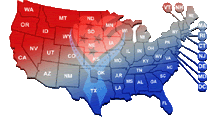The powers that be at the Department of Veterans Affairs tell me that, with certain exceptions, VA benefits are exempt from claims of creditors, attachment, garnishment and other forms of legal process under Title 38, Section 5301 of the U.S. Code.
This protection applies to benefits "either before or after receipt by the beneficiary."
For example, the U.S. Supreme Court has held that VA benefits on deposit in a bank account retain their exemption from attachment because they remain available on demand for the support and maintenance of the veteran and the veteran's dependents, or for the support and maintenance of the veteran's survivors.
VA General Counsel has held that the VA is not permitted to deduct a portion of the beneficiary's payment in order for the beneficiary to obtain private dental insurance even when the beneficiary requests that this deduction be made. The General Counsel held that this would violate the provisions of Section 5301(a) that prohibit the assignment of payments of VA benefits.
The exemption protection does not apply to "claims of the United States arising under [veterans benefits laws]" according to Section 5301(a)(1).
So when a veteran receives an overpayment of benefits, VA may legally collect the debt by reducing his monthly benefits.
An exception to the protection is that VA disability compensation is garnishable to the extent to which a military retiree waived all or part of his or her retired pay in order to receive such compensation from VA.
Sgt. Shaft : Archives
This protection applies to benefits "either before or after receipt by the beneficiary."
For example, the U.S. Supreme Court has held that VA benefits on deposit in a bank account retain their exemption from attachment because they remain available on demand for the support and maintenance of the veteran and the veteran's dependents, or for the support and maintenance of the veteran's survivors.
VA General Counsel has held that the VA is not permitted to deduct a portion of the beneficiary's payment in order for the beneficiary to obtain private dental insurance even when the beneficiary requests that this deduction be made. The General Counsel held that this would violate the provisions of Section 5301(a) that prohibit the assignment of payments of VA benefits.
The exemption protection does not apply to "claims of the United States arising under [veterans benefits laws]" according to Section 5301(a)(1).
So when a veteran receives an overpayment of benefits, VA may legally collect the debt by reducing his monthly benefits.
An exception to the protection is that VA disability compensation is garnishable to the extent to which a military retiree waived all or part of his or her retired pay in order to receive such compensation from VA.
Sgt. Shaft : Archives





No comments:
Post a Comment